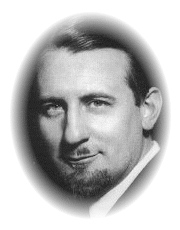Philip Heseltine/Peter Warlock, a man of many inter-connected but
diverse talents was born in the Savoy Hotel, London, on 30 October 1894.
His death on 17 December 1930 at 30 Tite Street, Chelsea is marked by a
plaque there. His education fitted his family's status: Stone House,
Broadstairs (1904 - 1908), Eton (1908 - 1911), Christ Church, Oxford (1913
- 1914), and University College, London (Michaelmas 1914 - one term).
Largely influenced by other composers -
Delius, van Dieren,
Quilter, and Bartók - he had little formal training. A deep poetic insight
prompted particular sympathies for Yeats, Robert Nichols (a friend), the
Elizabethans (especially Shakespeare) and, at the end of his life, Bruce
Blunt. A strong Celtic affinity caused him to study Cornish, Welsh, Irish,
Manx and Breton.
His musical activities fall fairly tidily into three
periods. After a contemplative year in Ireland c.1917-18, early mature
works (such as Corpus Christi, As dew in Aprylle and My gostly
fader) were written between 1918-20 whereafter composing briefly gave
way to journalism. He edited The Sackbut from 1920/21 and wrote,
inter alia, articles on Elizabethan song, Hungarian music, and
chromaticism. He continued to promote Delius's music, transcribing some of
that composer's work for piano as well as writing the Serenade, a
60th birthday tribute. Travels in north Africa and Europe reached
Budapest; he met Bartók, plans for whose London début were
initiated.
The next three years, the most settled and prolific of
his life, centred on
Cefn-Bryntalch, his family home in Wales. He finished The Curlew,
produced some of his finest songs (such as the Lillygay cycle),
made numerous transcriptions of early music and completed a biography of
Delius (Bodley Head 1923) still thought significant.
In 1925 he moved to Eynsford, Kent. Three years there
were the last really fruitful ones. He wrote (with Cecil Gray) a study of
Gesualdo, more piano songs (the Belloc pieces, Cradle Song, Robin
Goodfellow, etc.) and choral settings of Webster and others. Back in
London he edited MILO and organised the 1929 Delius Festival with
Sir Thomas Beecham. Friendship with the poet Bruce Blunt inspired a few
pieces (including The Fox, and The Frostbound Wood) among
the best British music of that era.
In under two decades, he wrote about 150 songs, two
dozen part-songs, a dozen items of vocal chamber music, and half a dozen
instrumental works as well as 600 transcriptions, some vast undertakings.
Journalism - books, articles, prefaces, reviews, and programme notes -
amounts to c.300,000 words.
